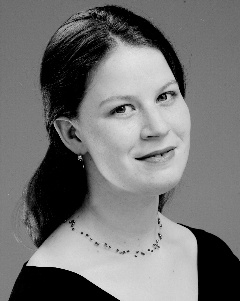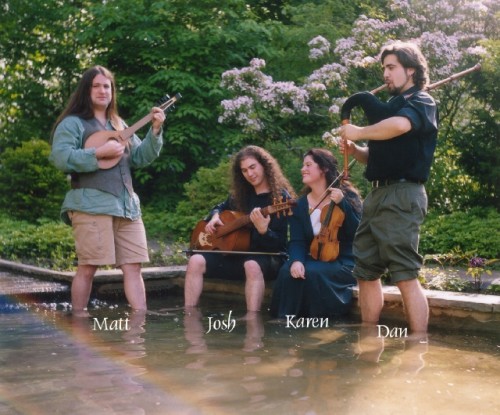Williamstown Early Music Presents Seven Times Salt
Holiday Concert by English Consort Band with Allison Mondel, Soprano
By: Michael Miller - Dec 23, 2006
Seven Times Salt, English Consort BandThe Unconquered Sun
Presented by Williamstown Early Music
St. John's Episcopal Church, Williamstown, Saturday, December 16, 2006, 8:00 pm
Williamstown Early Music, founded barely a year ago by Allison Mondel and Richard Giarusso, has already brought several memorable experiences to the area, including historically informed performances of Bach's St. John Passion and Schubert's Schwanengesang. Now, by inviting the also relatively young English consort band, Seven Times Salt, to perform this mid-December at St. John's Episcopal Church in Williamstown, they have given us a resonant celebration of the Christmas season in their program, "The Unconquered Sun," referring the unbroken power of the sun on the winter solstice, the briefest and darkest day of the year.
Founded in 2003 in Cambridge, Massachusetts by four gifted young musicians, Daniel Meyers (recorders, flutes, pipe and tabor, bagpipes, baritone), Karen Burciaga (Renaissance violin, treble viol, mezzo-soprano), Josh Schreiber (viola da gamba, bass), and Matthew Wright (lute, cittern, guitar, tenor), all connected in some way with the Longy School of Music in Cambridge. They specialize in the English consort repertoire of the 16th and 17th centuries, most familiar to most of us in the ensemble music of Thomas Morley, John Dowland, and William Locke. Their name comes from Laertes' exclamation of his grief in Hamlet, Act IV, Sc. v and refers to the melancholy music of which Dowland ("semper dolens") and other Elizabethans were such great masters. Saturday evening they were joined by WEM co-founder Allison Mondel, soprano, who performed most of the solo vocal parts. Ms. Mondel, who has an MA in Early Music Vocal Performance from Longy, has appeared at the Boston Early Music Festival and the New Opera of Williamstown. She has also pursued research on the Montpellier and Las Huelgas manuscripts as well as the notation and performance of the chants of Hildegard von Bingen. As harmonious as she appeared to be with her collaborators, she enriched the evening by adding an additional individuality of particular authority and charm. Her voice is flexible and attractive in all registers, and she projected a thorough command of the music and texts, whether they were pastoral, devotional, humorous, or simply full of jolly spirits.
The selections covered England, Ireland, the Low Countries, and the Mediterranean, popular devotional songs, as well as reveling songs, dances, and a modern solstice hymn by Steeleye Span, the British folk-rock group. This should give you an idea of the interpretative bent of Seven Times Salt's performances. Daniel Meyers, in fact, has a special interest in Irish folk music and is known for his playing of the tin whistle and the uilleann pipes. In fact he produced an impressive array of flutes, recorders and pipes, suiting the geographical and historical range of the pieces. Typical of their approach to this festive music is a first presentation of the tune in a sung arrangement typical of a particular time and place in the Renaissance or Baroque eras, followed by free variations often dance-like in character, extending into the realm of folk-music, suggesting an unbroken tradition extending over four hundred years to the present day, when groups like Steeleye Span and Seven Times Salt keep it alive. This kind of interpretation shows us the communality of the popular and "classical" worlds, where a tune might well find its way into the formal music of the court or popular gatherings at fairs and in taverns.
Apart from the imagination, learning, and freedom of the performances, the musicians' comfortable relationship with each other was particularly striking. Their ensemble had a relaxed confidence that showed their outstanding musicianship and familiarity with one another. The entire evening was a delight, and the occasion was enhanced by the intimate and festive atmosphere of St. John's.
Coming as it did at the climax the grand "Unconquerable Sun" was really quite moving. As it ended the mood shifted rapidly into a series of merry dances, leading us further into Hibernian realms.



